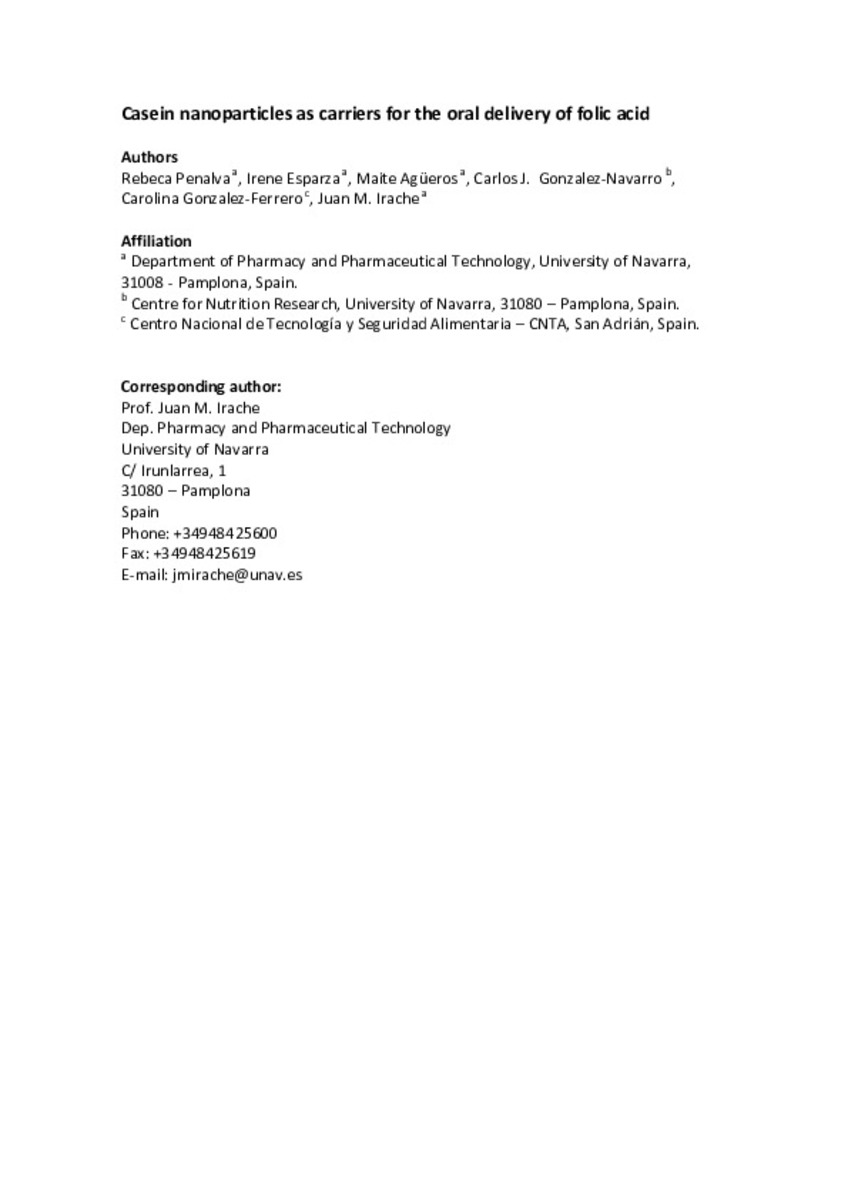Casein nanoparticles as carriers for the oral delivery of folic acid
Palabras clave :
Casein
Nanoparticles
Folic acid
Lysine
Bioavailability
Oral delivery
Materias Investigacion::Ciencias de la Salud::Nutrición y dietética
Fecha de publicación :
2014
Proyecto:
The Regional Government of Navarra (Alimentos funcionales, Euroinnova call)
the Spanish Ministry of Science and Innovation (ADICAP; ref. IPT‐2011‐1717‐900000).
Cita:
Peñalva R, Esparza I, Agüeros M, González-Navarro C, González Ferrero C, Irache JM, et al. Casein nanoparticles as carriers for the oral delivery of folic acid. Food Hidrocolloids 2014;44:399–406
Aparece en las colecciones:
Estadísticas e impacto
0 citas en

0 citas en

Los ítems de Dadun están protegidos por copyright, con todos los derechos reservados, a menos que se indique lo contrario.










